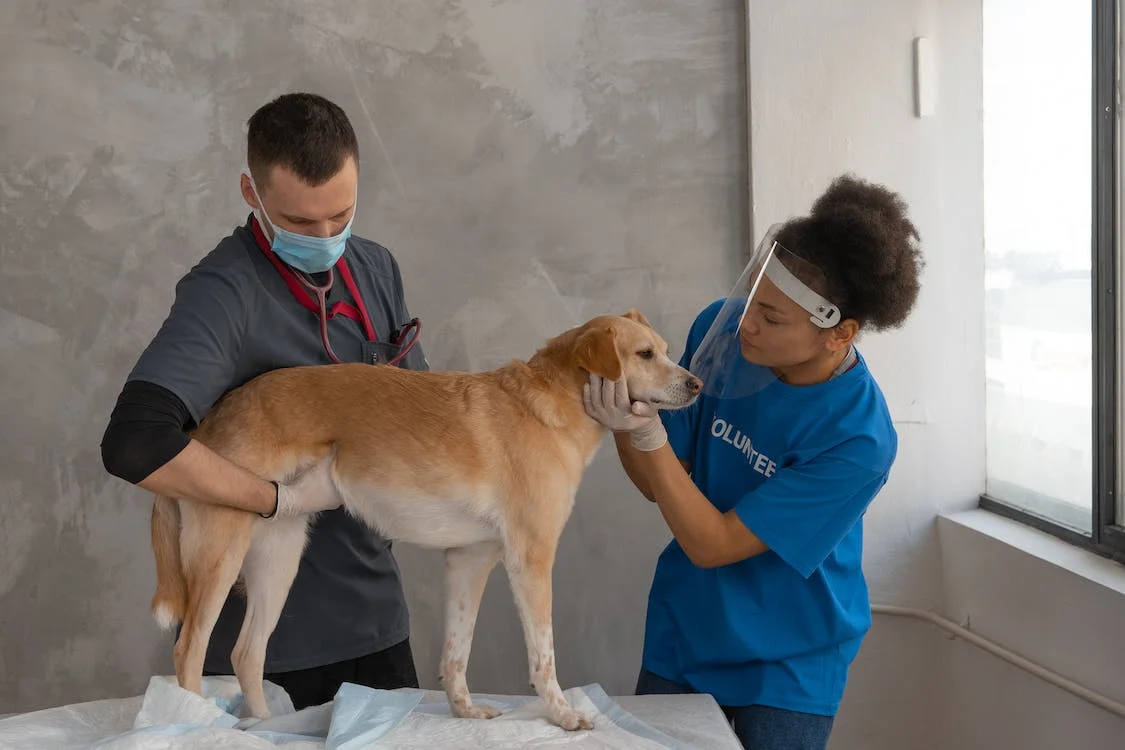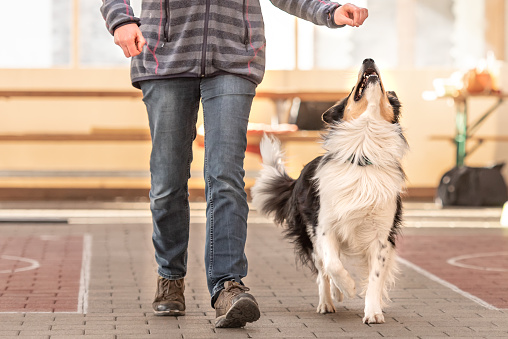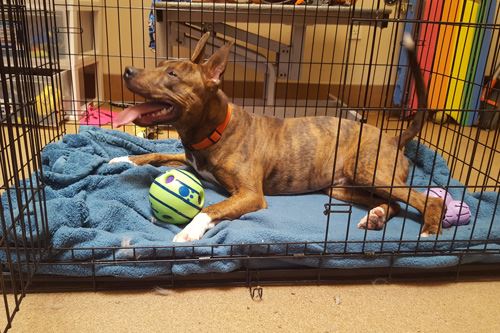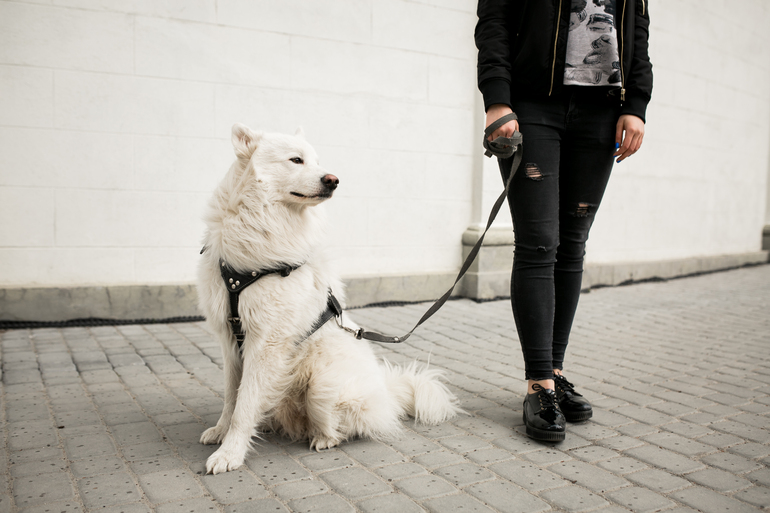
Dogs are not just mere animals; they are our loyal companions, faithful friends, and cherished members of our family. As pet owners, we must ensure that our furry friends live their best lives, free from pain and suffering.
That's why we need to go beyond traditional veterinary medicine and embrace holistic approaches to their health! Holistic health for dogs considers the whole being, mind, body, and spirit and seeks to achieve balance and harmony within.
It is a call to action to explore alternative and complementary methods, such as acupuncture, chiropractic care, herbal remedies, and many others, to enhance and maintain their well-being.
1. Focuses on Overall Well-Being
Holistic health is an approach to healthcare that considers the whole being, including an individual's physical, emotional, and spiritual aspects. This approach is not limited to humans but can also be applied to our beloved pets, specifically dogs.
When it comes to a dog's physical health, this involves providing them with proper nutrition, exercise, and veterinary care. A balanced diet rich in nutrients and appropriate for the dog's age, breed, and activity level is essential for maintaining good health. Regular exercise helps to keep a dog physically fit, promotes mental well-being, and reduces the risk of certain health problems. Regular visits to the veterinarian are also essential to detect and prevent any health issues before they become more serious.
Emotional health is just as important as physical health when it comes to holistic health for dogs. Dogs have emotions and feelings too and need love, attention, and socialization to be happy and healthy. Providing a safe and secure environment, spending quality time with them, and exposing them to positive experiences can contribute to their emotional well-being.
The spiritual aspect of holistic health for dogs is more subjective. This can refer to the bond and connection between the dog and its owner, or the dog's sense of purpose and meaning in life. This could involve training, working, or participating in obedience trials, agility, or therapy dog work that allow dogs to use their instincts and abilities.
Holistic health for dogs considers the whole being of a dog and strives for balance and harmony in all aspects of their health. By taking care of their physical, emotional, and spiritual needs, we can help our dogs lead happier and healthier lives.
2. Non-Traditional Treatments
Alternative healthcare methods, such as acupuncture, chiropractic care, and herbal remedies, play a crucial role in the holistic approach to dog health. These methods complement traditional veterinary care and offer a non-invasive approach to treating various health issues.
Acupuncture, for instance, uses fine needles to stimulate specific points on the dog's body to promote healing and reduce pain. This ancient Chinese therapy effectively treats conditions such as arthritis, digestive problems, and skin conditions.
Chiropractic care is another alternative method that focuses on properly aligning the dog's spine and joints. By correcting any misalignment, chiropractic care can help to alleviate pain, improve mobility, and enhance overall well-being.
Herbal remedies, such as essential oils and herbal supplements, can also play a role in holistic health for dogs. These natural remedies offer a gentler approach to treating various health issues and can be used alongside traditional medications or as a standalone treatment.
It's important to note that alternative healthcare methods should not be used as a substitute for traditional veterinary care. It's always best to consult with a veterinarian before trying any alternative methods to ensure they are safe and appropriate for your dog.
Alternative healthcare methods play a crucial role in the holistic approach to dog health. These non-invasive methods offer a gentler approach to treating various health issues and can be used to complement traditional veterinary care.
3. Provides Numerous Benefits
Non-traditional treatments such as acupuncture, chiropractic care, and herbal remedies have been shown to provide numerous benefits for dogs. These treatments have been found to offer pain relief, improved mobility, and a boost to the immune system, among other benefits.
Acupuncture, for instance, is effective in reducing pain associated with conditions such as arthritis, hip dysplasia, and intervertebral disc disease. It works by stimulating specific points on the dog's body to promote healing and reducing inflammation. Regular acupuncture sessions can also help to improve overall well-being and enhance the dog's quality of life.
Chiropractic care is another non-traditional treatment shown to provide significant benefits for dogs. By correcting any misalignment in the dog's spine and joints, chiropractic care can help to relieve pain, improve mobility, and enhance overall well-being. This treatment is particularly useful for dogs with hip dysplasia, arthritis, and back pain.
Herbal remedies, such as essential oils and herbal supplements, are also popular alternative treatments for dogs. These natural remedies are gentle, non-invasive, and effective in treating a wide range of health issues. For example, chamomile and valerian root are commonly used to reduce anxiety, while echinacea and ginger can help to boost the immune system.
Imagine your lovely doodle being in pain and the holistic approach is helping your furry friend to have a better and healthier time. Hence, non-traditional treatments are the answer to enabling your dog to have a holistic environment. You can also look into we love doodles if you are willing to adopt a doodle!
It's important to note that non-traditional treatments should not be used as a substitute for traditional veterinary care. It's always best to consult a veterinarian before trying any alternative treatments to ensure they are safe and appropriate for your dog.
4. Enhances Overall Health
Incorporating non-traditional treatments such as acupuncture, chiropractic care, and herbal remedies into your dog's healthcare routine can enhance its overall health and quality of life. These treatments offer a gentler and complementary approach to traditional veterinary care and can help address many health issues.
For example, incorporating acupuncture into your dog's routine can help to reduce pain associated with conditions such as arthritis and hip dysplasia. Regular acupuncture sessions can also help to improve overall well-being and enhance the dog's quality of life. This non-invasive treatment can be used with traditional medications to provide a well-rounded approach to healthcare.
Chiropractic care is another non-traditional treatment that can greatly benefit dogs. By correcting any misalignment in the dog's spine and joints, chiropractic care can help to relieve pain, improve mobility, and enhance overall well-being. This treatment is particularly useful for dogs with hip dysplasia, arthritis, and back pain. Incorporating regular chiropractic care into your dog's healthcare routine can help to prevent these conditions from becoming more serious and improve their quality of life.
Herbal remedies, such as essential oils and herbal supplements, can also enhance your dog's overall health. These natural remedies are gentle and non-invasive and are effective in treating a wide range of health issues. For example, chamomile and valerian root are commonly used to reduce anxiety, while echinacea and ginger can help to boost the immune system. By incorporating these remedies into your dog's routine, you can help to improve their overall health and prevent certain health issues from becoming more serious.
It's important to note that non-traditional treatments should not be used as a substitute for traditional veterinary care. It's always best to consult a veterinarian before trying any alternative treatments to ensure they are safe and appropriate for your dog.
5. A Gift of Well-Being
By incorporating holistic health into your dog's routine, you can give them the gift of improved well-being and an enhanced quality of life. Holistic health considers a dog's health's physical, emotional, and spiritual aspects and strives for balance and harmony. By addressing all aspects of your furry friend's health, you can help them to live a happy, healthy, and fulfilling life.
Non-traditional treatments such as acupuncture, chiropractic care, and herbal remedies can play a crucial role in this holistic approach. These treatments offer a gentler and complementary approach to traditional veterinary care and can help address many health issues. For example, acupuncture can help to reduce pain, chiropractic care can improve mobility, and herbal remedies can boost the immune system. By incorporating these treatments into your dog's routine, you can help to improve their overall health and prevent certain health issues from becoming more serious.
It's also important to consider other aspects of holistic health, such as diet and exercise. Feeding your dog a healthy, balanced diet can help to maintain their weight and improve their overall health. Regular exercise can help to keep them physically fit, reduce stress, and improve their mental well-being.
By giving your furry friend the gift of holistic health, you can help them to live a happy and fulfilling life. Holistic health is about creating balance and harmony in all aspects of your dog's life, and by doing so, you can help to prevent certain health issues from becoming more serious and improve their quality of life.
Conclusion
In conclusion, holistic approaches to dog health are simply a game-changer! It's about time we stop just treating the symptoms and start looking at the whole picture. Our furry friends deserve the best, considering all aspects of their health, not just the physical.










